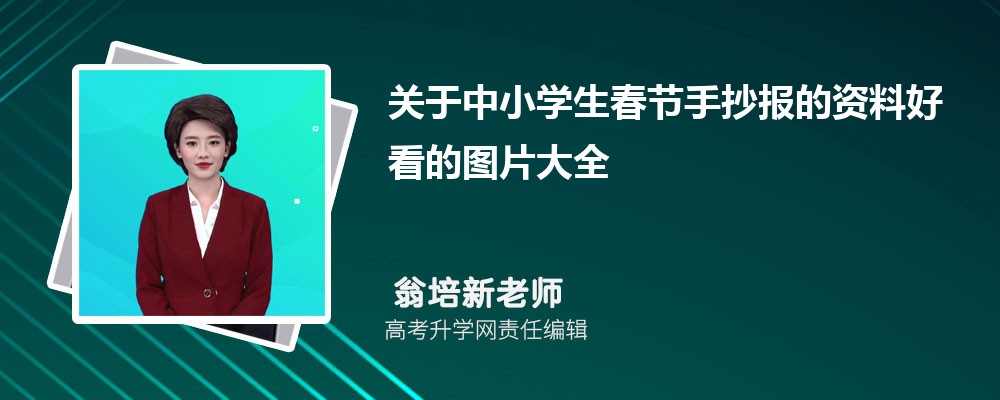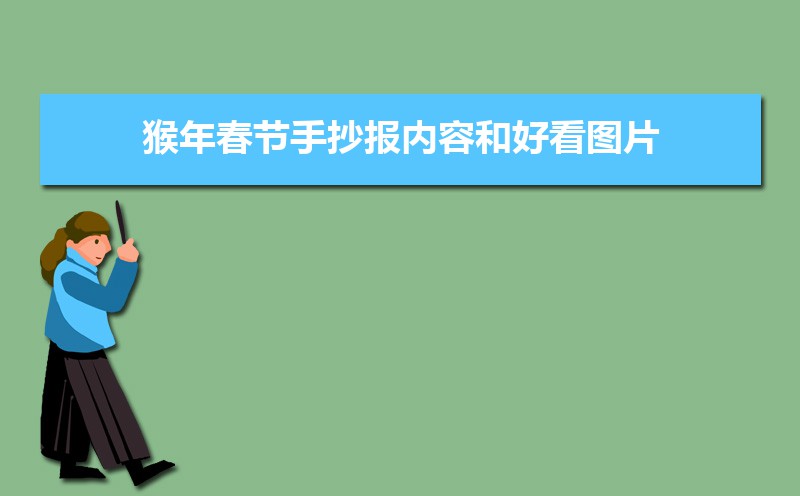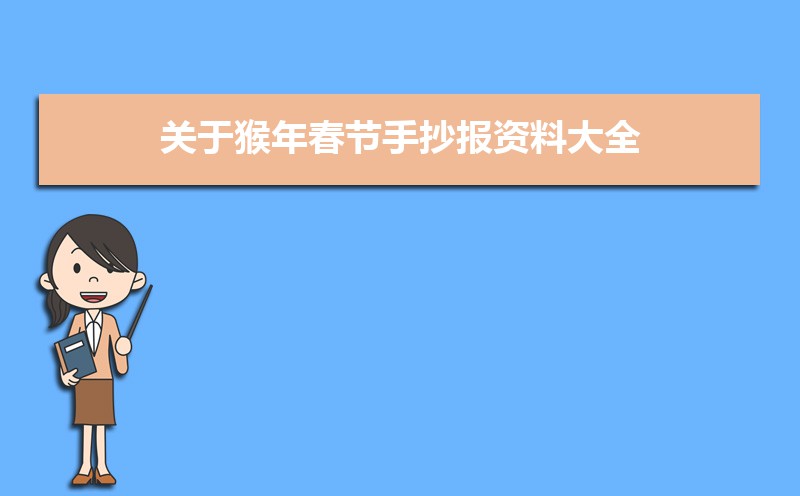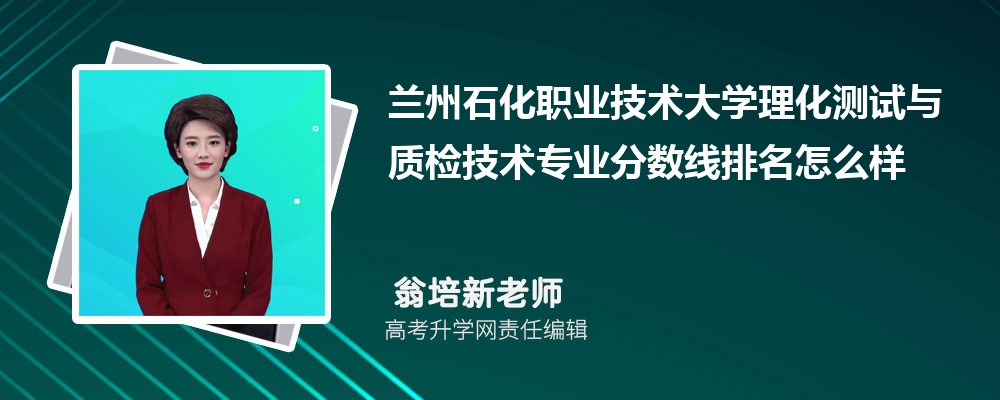當(dāng)前位置:高考升學(xué)網(wǎng) > 春節(jié)手抄報(bào) > 正文
豬年過(guò)年春節(jié)手抄報(bào)肉容和圖片大全
更新:2023-09-15 12:07:53 高考升學(xué)網(wǎng)春節(jié)歷法
春節(jié)時(shí)間
中國(guó)人過(guò)春節(jié)已有4000多年的歷史。
在現(xiàn)代,人們把春節(jié)定于農(nóng)歷正月初一,但一般至少要到正月十五(上元節(jié))新年才算結(jié)束,在民間,傳統(tǒng)意義上的春節(jié)是指從臘月的臘祭或臘月二十三或二十四的祭灶,一直到正月十九。
春節(jié)的時(shí)間(農(nóng)歷正月初一)在公歷1月21日至2月21日之間游動(dòng)。“最早的春節(jié)”(如1966年的1月21日)和“最遲的春節(jié)”(如1985年的2月20日)相差整一個(gè)月。根據(jù)歷法計(jì)算,如果農(nóng)歷不進(jìn)行人為調(diào)整的話,2319年2月21日將迎來(lái)“史上最晚春節(jié)”,此前春節(jié)最遲出現(xiàn)在公歷2月20日,為1920年和1985年。
閏春節(jié)
閏春節(jié),又稱(chēng)閏正月,從公元1645年使用歷理置閏制開(kāi)始,到公元2800年的1155年里,農(nóng)歷閏正月只發(fā)生6次,非常罕見(jiàn),其年份分別是1651、2262、2357、2520、2539、2634 。
閏春節(jié)的過(guò)法
如果一年有閏正月,原則上春節(jié)過(guò)第一個(gè)正月的,到了閏正月的時(shí)候則不過(guò)節(jié)。當(dāng)然,也有少數(shù)地區(qū)過(guò)完第一個(gè)正月的春節(jié)以后,到了閏正月的時(shí)候也過(guò)閏正月的春節(jié),因?yàn)殚c正月也叫正月,所以也把閏正月的初一也看做春節(jié)來(lái)過(guò)。
歷史沿革
春節(jié)起源
關(guān)于春節(jié)的起源有多種說(shuō)法,其中幾種較具代表性的說(shuō)法,如春節(jié)源于臘祭,春節(jié)源于巫術(shù)儀式說(shuō),春節(jié)源于鬼節(jié)說(shuō)等, 但其中被普遍接受的說(shuō)法是春節(jié)由虞舜時(shí)期興起。
公元前2000多年的一天,舜即天子位,帶領(lǐng)著部下人員,祭拜天地。從此,人們就把這一天當(dāng)作歲首。據(jù)說(shuō)這就是農(nóng)歷新年的由來(lái),后來(lái)叫春節(jié)。
時(shí)間變革
中國(guó)歷代的春節(jié)的日期并不一致:
夏朝用孟春的元月為正月。
商朝用臘月(十二月)為正月。
秦始皇統(tǒng)一六國(guó)后規(guī)定以十月為正月,漢朝初期沿用秦歷。
漢武帝太初元年,即公元前104年,天文學(xué)家落下閎、鄧等人制訂了《太初歷》,將原來(lái)以十月為歲首改為以孟春正月為歲首,后人在此基本上逐漸完善為我們當(dāng)今使用的陰歷(即農(nóng)歷),落下閎也被稱(chēng)為“春節(jié)老人”。此后中國(guó)一直沿用夏歷(陰歷,又稱(chēng)農(nóng)歷)紀(jì)年,直到清朝未年,長(zhǎng)達(dá)2080年。
Preceding days 春節(jié)前
This article does not cite any references or sources.
Please help improve this article by adding citations to reliable sources. Unsourced material may be challenged and removed. (January 2010)
On the days before the New Year celebration Chinese families give their home a thorough cleaning. There is a Cantonese saying "Wash away the dirt on ninyabaat" (年廿八,洗邋遢), but the practice is not usually restricted on nin'ya'baat (年廿八, the 28th day of month 12). It is believed the cleaning sweeps away the bad luck of the preceding year and makes their homes ready for good luck. Brooms and dust pans are put away on the first day so that luck cannot be swept away. Some people give their homes, doors and window-frames a new coat of red paint. Homes are often decorated with paper cutouts of Chinese auspicious phrases and couplets. Purchasing new clothing, shoes, and receiving a hair-cut also symbolize a fresh start.
In many households where Buddhism or Taoism is preva lent, home altars and statues are cleaned thoroughly, and altars that were adorned with decorations from the previous year are also taken down and burned a week before the new year starts, and replaced with new decorations. Taoists (and Buddhists to a lesser extent) will also "send gods" (送神), an example would be burning a paper effigy of Zao Jun the Kitchen God, the recorder of family functions. This is done so that the Kitchen God can report to the Jade Emperor of the family household's transgressions and good deeds. Families often offer sweet foods (such as candy) in order to "bribe" the deities into reporting good things about the family.
The biggest event of any Chinese New Year's Eve is the dinner every family will have. A dish consisting of fish will appear on the tables of Chinese families. It is for display for the New Year's Eve dinner. This meal is comparable to Christmas dinner in the West. In northern China, it is customary to make dumplings (jiaozi 餃子) after dinner and have it around midnight. Dumplings symbolize wealth because their shape is like a Chinese tael. By contrast, in the South, it is customary to make a new year cake (Niangao, 年糕) after dinner and send pieces of it as gifts to relatives and friends in the coming days of the new year. Niangao literally means increasingly prosperous year in year out. After the dinner, some families go to local temples, hours before the new year begins to pray for a prosperous new year by lighting the first incense of the year; however in modern practice, many households hold parties and even hold a countdown to the new lunar year. Beginning in the 1980s, the CCTV New Year's Gala was broadcast four hours before the start of the New Year.
中小學(xué)生春節(jié)手抄報(bào)簡(jiǎn)單漂亮的圖片大全2023-09-21 07:50:22
猴年小學(xué)生春節(jié)手抄報(bào)設(shè)計(jì)圖片大全2023-09-16 23:32:18
中小學(xué)生春節(jié)手抄報(bào)簡(jiǎn)單漂亮的圖片大全2023-09-21 07:50:22
猴年小學(xué)生春節(jié)手抄報(bào)設(shè)計(jì)圖片大全2023-09-16 23:32:18
關(guān)于中小學(xué)生春節(jié)手抄報(bào)的資料好看的圖片大全2023-09-19 23:52:01
小學(xué)低年級(jí)猴年春節(jié)手抄報(bào)內(nèi)容圖片大全2023-09-20 03:42:40
猴年小學(xué)二年級(jí)春節(jié)手抄報(bào)資料圖片大全2023-09-19 12:44:46
小學(xué)生春節(jié)手抄報(bào)內(nèi)容圖片大全2023-09-16 11:47:00
中小學(xué)生猴年春節(jié)手抄報(bào)辭舊迎新【推薦】2023-09-17 20:54:21
最新猴年新年春節(jié)手抄報(bào)精選內(nèi)容大全2023-09-16 05:41:47
猴年慶祝春節(jié)手抄報(bào)推薦資料2023-09-13 17:02:31
猴年新年春節(jié)手抄報(bào)內(nèi)容大全2023-09-22 01:01:15
猴年春節(jié)手抄報(bào)內(nèi)容資料【簡(jiǎn)單又漂亮】2023-09-19 17:22:51
猴年春節(jié)手抄報(bào)內(nèi)容和好看圖片大全2023-09-21 17:25:55
猴年春節(jié)手抄報(bào)資料圖片大全2023-09-13 05:46:35
關(guān)于猴年春節(jié)手抄報(bào)資料大全2023-09-14 17:01:03
關(guān)于春節(jié)的手抄報(bào)文字資料2023-09-19 16:47:09
春節(jié)手抄報(bào)內(nèi)容資料大全2023-09-14 12:49:14
辭舊迎新小學(xué)生春節(jié)手抄報(bào)資料多圖2023-09-16 06:17:20
小學(xué)生迎接春節(jié)手抄報(bào)版面設(shè)計(jì)圖2023-09-20 20:43:29
關(guān)于春節(jié)的手抄報(bào)圖片內(nèi)容好看的圖片2023-09-18 22:57:42
猴年春節(jié)手抄報(bào)內(nèi)容簡(jiǎn)單漂亮的圖片2023-09-20 05:52:39
蘭州石化職業(yè)技術(shù)大學(xué)的理化測(cè)試與質(zhì)檢技術(shù)專(zhuān)業(yè)分?jǐn)?shù)線(附2020-最低分排名怎么樣)2025-05-22 10:29:06
泉州師范學(xué)院和亳州學(xué)院哪個(gè)好 分?jǐn)?shù)線排名對(duì)比2025-05-22 10:27:53
貴州醫(yī)科大學(xué)在江西高考專(zhuān)業(yè)招生計(jì)劃(人數(shù)+代碼)2025-05-22 10:26:23
東莞城市學(xué)院和西安工商學(xué)院哪個(gè)好 分?jǐn)?shù)線排名對(duì)比2025-05-22 10:24:51
山東海事職業(yè)學(xué)院的水路運(yùn)輸安全管理專(zhuān)業(yè)分?jǐn)?shù)線(附2020-最低分排名怎么樣)2025-05-22 10:23:44
重慶郵電大學(xué)和蘭州交通大學(xué)哪個(gè)好 分?jǐn)?shù)線排名對(duì)比2025-05-22 10:22:13
武威職業(yè)學(xué)院的光伏工程技術(shù)專(zhuān)業(yè)分?jǐn)?shù)線(附2020-最低分排名怎么樣)2025-05-22 10:20:51
湖南師范大學(xué)樹(shù)達(dá)學(xué)院和貴州中醫(yī)藥大學(xué)時(shí)珍學(xué)院哪個(gè)好 分?jǐn)?shù)線排名對(duì)比2025-05-22 10:19:30
重慶高考物理類(lèi)291分能上什么大學(xué)(公辦+民辦)2025-05-22 10:18:09
長(zhǎng)春財(cái)經(jīng)學(xué)院和北京工業(yè)大學(xué)耿丹學(xué)院哪個(gè)好 分?jǐn)?shù)線排名對(duì)比2025-05-22 10:16:58
江西師范高等專(zhuān)科學(xué)校的電子商務(wù)專(zhuān)業(yè)分?jǐn)?shù)線(附2020-最低分排名怎么樣)2025-05-22 10:15:36
廣州新華學(xué)院遼寧錄取分?jǐn)?shù)線及招生人數(shù) 附-2020最低位次排名2025-05-22 10:14:09
中小學(xué)生春節(jié)手抄報(bào)簡(jiǎn)單漂亮的圖片大全2023-09-21 07:50:22
猴年小學(xué)生春節(jié)手抄報(bào)設(shè)計(jì)圖片大全2023-09-16 23:32:18
最新圖文

春節(jié)手抄報(bào)版面設(shè)計(jì)
時(shí)間:2023-09-21 13:0:17
歡度春節(jié)手抄報(bào)內(nèi)容
時(shí)間:2023-09-20 14:0:55
春節(jié)手抄報(bào)簡(jiǎn)單又漂亮
時(shí)間:2023-09-19 17:0:06
新年手抄報(bào)版面設(shè)計(jì)
時(shí)間:2023-09-17 20:0:34欄目最新
- 1新年手抄報(bào)模板簡(jiǎn)單又漂亮
- 2春節(jié)手抄報(bào)設(shè)計(jì)內(nèi)容圖片大全
- 3小學(xué)生春節(jié)手抄報(bào)資料圖片大全
- 4雞年春節(jié)手抄報(bào)資料內(nèi)容大全
- 5春節(jié)手抄報(bào)圖片設(shè)計(jì)大全,除夕的古詩(shī)詞
- 6元宵節(jié)手抄報(bào)內(nèi)容資料大全
- 7小學(xué)生春節(jié)手抄報(bào)資料大全
- 8春節(jié)手抄報(bào)內(nèi)容圖片大全,春節(jié)習(xí)俗大全
- 9春節(jié)過(guò)年手抄報(bào)內(nèi)容圖片大全
- 10歡度春節(jié)手抄報(bào)版面設(shè)計(jì)圖
 中小學(xué)生春節(jié)手抄報(bào)簡(jiǎn)單漂亮的圖片大全
中小學(xué)生春節(jié)手抄報(bào)簡(jiǎn)單漂亮的圖片大全 猴年小學(xué)生春節(jié)手抄報(bào)設(shè)計(jì)圖片大全
猴年小學(xué)生春節(jié)手抄報(bào)設(shè)計(jì)圖片大全 關(guān)于中小學(xué)生春節(jié)手抄報(bào)的資料好看的圖片大全
關(guān)于中小學(xué)生春節(jié)手抄報(bào)的資料好看的圖片大全 小學(xué)低年級(jí)猴年春節(jié)手抄報(bào)內(nèi)容圖片大全
小學(xué)低年級(jí)猴年春節(jié)手抄報(bào)內(nèi)容圖片大全 猴年小學(xué)二年級(jí)春節(jié)手抄報(bào)資料圖片大全
猴年小學(xué)二年級(jí)春節(jié)手抄報(bào)資料圖片大全 小學(xué)生春節(jié)手抄報(bào)內(nèi)容圖片大全
小學(xué)生春節(jié)手抄報(bào)內(nèi)容圖片大全 中小學(xué)生猴年春節(jié)手抄報(bào)辭舊迎新【推薦】
中小學(xué)生猴年春節(jié)手抄報(bào)辭舊迎新【推薦】 最新猴年新年春節(jié)手抄報(bào)精選內(nèi)容大全
最新猴年新年春節(jié)手抄報(bào)精選內(nèi)容大全 猴年慶祝春節(jié)手抄報(bào)推薦資料
猴年慶祝春節(jié)手抄報(bào)推薦資料 猴年新年春節(jié)手抄報(bào)內(nèi)容大全
猴年新年春節(jié)手抄報(bào)內(nèi)容大全 猴年春節(jié)手抄報(bào)內(nèi)容資料【簡(jiǎn)單又漂亮】
猴年春節(jié)手抄報(bào)內(nèi)容資料【簡(jiǎn)單又漂亮】 猴年春節(jié)手抄報(bào)內(nèi)容和好看圖片大全
猴年春節(jié)手抄報(bào)內(nèi)容和好看圖片大全 猴年春節(jié)手抄報(bào)資料圖片大全
猴年春節(jié)手抄報(bào)資料圖片大全 關(guān)于猴年春節(jié)手抄報(bào)資料大全
關(guān)于猴年春節(jié)手抄報(bào)資料大全 關(guān)于春節(jié)的手抄報(bào)文字資料
關(guān)于春節(jié)的手抄報(bào)文字資料 春節(jié)手抄報(bào)內(nèi)容資料大全
春節(jié)手抄報(bào)內(nèi)容資料大全 辭舊迎新小學(xué)生春節(jié)手抄報(bào)資料多圖
辭舊迎新小學(xué)生春節(jié)手抄報(bào)資料多圖 小學(xué)生迎接春節(jié)手抄報(bào)版面設(shè)計(jì)圖
小學(xué)生迎接春節(jié)手抄報(bào)版面設(shè)計(jì)圖 關(guān)于春節(jié)的手抄報(bào)圖片內(nèi)容好看的圖片
關(guān)于春節(jié)的手抄報(bào)圖片內(nèi)容好看的圖片 猴年春節(jié)手抄報(bào)內(nèi)容簡(jiǎn)單漂亮的圖片
猴年春節(jié)手抄報(bào)內(nèi)容簡(jiǎn)單漂亮的圖片 蘭州石化職業(yè)技術(shù)大學(xué)的理化測(cè)試與質(zhì)檢技術(shù)專(zhuān)業(yè)分?jǐn)?shù)線(附2020-最低分排名怎么樣)
蘭州石化職業(yè)技術(shù)大學(xué)的理化測(cè)試與質(zhì)檢技術(shù)專(zhuān)業(yè)分?jǐn)?shù)線(附2020-最低分排名怎么樣) 泉州師范學(xué)院和亳州學(xué)院哪個(gè)好 分?jǐn)?shù)線排名對(duì)比
泉州師范學(xué)院和亳州學(xué)院哪個(gè)好 分?jǐn)?shù)線排名對(duì)比 貴州醫(yī)科大學(xué)在江西高考專(zhuān)業(yè)招生計(jì)劃(人數(shù)+代碼)
貴州醫(yī)科大學(xué)在江西高考專(zhuān)業(yè)招生計(jì)劃(人數(shù)+代碼) 東莞城市學(xué)院和西安工商學(xué)院哪個(gè)好 分?jǐn)?shù)線排名對(duì)比
東莞城市學(xué)院和西安工商學(xué)院哪個(gè)好 分?jǐn)?shù)線排名對(duì)比 山東海事職業(yè)學(xué)院的水路運(yùn)輸安全管理專(zhuān)業(yè)分?jǐn)?shù)線(附2020-最低分排名怎么樣)
山東海事職業(yè)學(xué)院的水路運(yùn)輸安全管理專(zhuān)業(yè)分?jǐn)?shù)線(附2020-最低分排名怎么樣) 重慶郵電大學(xué)和蘭州交通大學(xué)哪個(gè)好 分?jǐn)?shù)線排名對(duì)比
重慶郵電大學(xué)和蘭州交通大學(xué)哪個(gè)好 分?jǐn)?shù)線排名對(duì)比 武威職業(yè)學(xué)院的光伏工程技術(shù)專(zhuān)業(yè)分?jǐn)?shù)線(附2020-最低分排名怎么樣)
武威職業(yè)學(xué)院的光伏工程技術(shù)專(zhuān)業(yè)分?jǐn)?shù)線(附2020-最低分排名怎么樣) 湖南師范大學(xué)樹(shù)達(dá)學(xué)院和貴州中醫(yī)藥大學(xué)時(shí)珍學(xué)院哪個(gè)好 分?jǐn)?shù)線排名對(duì)比
湖南師范大學(xué)樹(shù)達(dá)學(xué)院和貴州中醫(yī)藥大學(xué)時(shí)珍學(xué)院哪個(gè)好 分?jǐn)?shù)線排名對(duì)比 重慶高考物理類(lèi)291分能上什么大學(xué)(公辦+民辦)
重慶高考物理類(lèi)291分能上什么大學(xué)(公辦+民辦) 長(zhǎng)春財(cái)經(jīng)學(xué)院和北京工業(yè)大學(xué)耿丹學(xué)院哪個(gè)好 分?jǐn)?shù)線排名對(duì)比
長(zhǎng)春財(cái)經(jīng)學(xué)院和北京工業(yè)大學(xué)耿丹學(xué)院哪個(gè)好 分?jǐn)?shù)線排名對(duì)比 江西師范高等專(zhuān)科學(xué)校的電子商務(wù)專(zhuān)業(yè)分?jǐn)?shù)線(附2020-最低分排名怎么樣)
江西師范高等專(zhuān)科學(xué)校的電子商務(wù)專(zhuān)業(yè)分?jǐn)?shù)線(附2020-最低分排名怎么樣) 廣州新華學(xué)院遼寧錄取分?jǐn)?shù)線及招生人數(shù) 附-2020最低位次排名
廣州新華學(xué)院遼寧錄取分?jǐn)?shù)線及招生人數(shù) 附-2020最低位次排名